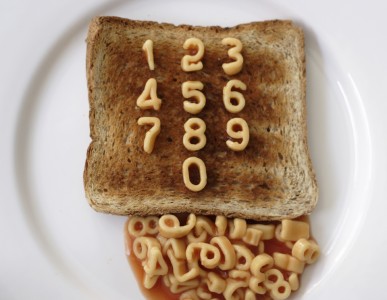Parents often ask me about how to get their child interested in maths because ‘they just don’t get it.’
Understandably the same parents go searching for a maths tutor to help bridge the ever growing gap between their child and his peers….what they don’t realise is there is a lot of help they can give at home with a little guidance.
-
Maths Language
Keep the maths language simple. Using words like ‘more’ for adding and ‘less’ for subtraction. Children can be introduced to this concept in any situation eg: more roast potatoes, more carrots, less sprouts! By using the same words over and over and using concrete materials the information slowly gets assimilated.
- Establish Logical thinking
Before an individual can acquire good maths skills they must have the ability to think logically. A fun and easy way to introduce logic to young children is through activities such as baking a cake or growing sunflowers. Both examples are linear processes a child needs to follow the steps before achieving the desired results. By talking about each step before and after you are helping establish a logical thought process. This can be easily transferred to …organising their school bag, or what is needed for a sleep over.
- Establish Sequential Thought process
This is very simple. All the parent needs to do is at the end of a day, in a relaxed manner, go through the events of the day and maybe discuss the events of the following day. By talking about daily activities, routines, a young child can quickly see how one thing follows another, an essential skills when understanding numbers implicitly. Parents tell me this activity is immensely rewarding because by replaying the events they are celebrating their day.
- Check Memory
Short term memory is required for mathematical tasks. If you are adding sums in your head and your ‘short term working memory’ is poor, you will not be able to hold on to the first piece of information, the maths function and the next piece of information and work out the answer. Playing memory games is crucial! Playing a simple game of counting the number of red cars on the way home can be very tell telling. If your child constantly loses the count and this is coupled with poor retention of verbal instructions, then there is reason to be concerned. Having a poor working memory is one of the biggest problems individuals have affecting their maths abilities. By constantly stretching the memory capacity and specialist training, it can be strengthened.
- Maths Talk
The language of maths is often a stumbling block. There are many words to describe each mathematical function. When your child has understood the basic concepts of ‘more,’ ‘less,’ it can be interchanged with forwards or backwards when counting. By doing this you are combining, logic, sequence and memory. Having the basics in place can also allow you to introduce more words to describe the same function ‘add,’ ‘together,’ ‘plus,’ and ‘addition’ are the same thing.
Finally learning should be fun. When we are relaxed we are predisposed to absorbing what we learn much easier. The funnier the delivery the quicker it will stick. If your child is struggling and your efforts are not gaining ground come and talk to me….I will put the fun back into Maths.

THE AUTHOR: Usha Patel is a Learning Difficulties Therapist . She works through using simple movements and exercises specified according to every child’s unique capability. Her focus lays on using non-invasive motor sensory techniques to help academic performance. Her exercise programmes are followed up by, research based, computer intervention programmes for reading, memory and auditory processing. Her newest project is introducing Bal-A-Vis-X (Balance, Auditory Vision Exercises) into schools via teacher training workshops. She is the first therapist in this country to bring this new school based exercise programme to the UK and can’t wait for it to take off!
You can contact Usha via her websites www.integratedbrain.co.uk and www.ravivpracticelondon.co.uk





Well done Usha. I wish I could have accessed this blog when I was studying maths! I am conscious of the way I experienced maths learning in school. I was taught maths by a bullish teacher who taught with a rod of iron. He teaching style and bullish nature brought fear and anxiety towards my experience of maths. Simplifying maths and taking the fear away with accessible language really aids the learner. Thank you for sharing this blog.
Vivien,
Thanks for these kind words.
The real problem lies not just in teaching maths but the pre-requisite to maths. I often work with children diagnosed with dyspraxia. These children have not learnt how to sequence in physical terms nor met their developmental milestones. Is it a wonder that the poor sequencing in body coordination leads to weak sequencing in academic terms and poor grasp of ‘more’ ‘less’ ‘before’ ‘after.’ ..it is an up hill battle educating the educators on how children learn.
Anyway going back to your comment of how you experienced maths. It is a shame as learning needs to be free of anxiety …otherwise information is seldom retained.
Brilliant article thank you. Sadly no matter how wonderful the school is you get children such as mine who are more artistic than academic. And even thought they try to like maths, it is one subject they dread. Schools are amazing but I sadly feel children that do not have the same sort of memory end up suffering from anxiety. There is so much pressure on our poor kids these days, they seem to be forced to grow up too quickly. Here is my little girl singing her own rap song about maths and how it stresses her out! http://www.youtube.com/watch?v=YCZoqG0_AXE
My little girl wants to do animation, so I hope her dream comes true and is not stopped because she may not be able to achieve all the qualifications our world expects from her.
I really liked your article Usha. I’m a Maths tutor for children mainly at primary level. Have you read “Elephant in the Classroom”? A nice books about some of the challenges facing teachers at school.
Several of my students have dyscalculia or extreme anxiety and I certainly think if you are slightly behind at school, this can massively affect your self-esteem and this is often caused by poor short term memory. My feeling is a person’s short term memory may be poor only in comparison to others and simply needs more time to develop.